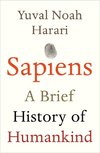
-
 Anglický jazyk
Anglický jazyk
Foreign relations of the Commonwealth of Nations
Autor: Source: Wikipedia
Source: Wikipedia. Pages: 63. Chapters: British Secretaries of State for Commonwealth Affairs, British Secretaries of State for Foreign and Commonwealth Affairs, John Major, James Callaghan, Alec Douglas-Home, Geoffrey Howe, Hastings Ismay, 1st Baron Ismay,... Viac o knihe
Na objednávku, dodanie 2-4 týždne
18.90 €
bežná cena: 21.00 €
O knihe
Source: Wikipedia. Pages: 63. Chapters: British Secretaries of State for Commonwealth Affairs, British Secretaries of State for Foreign and Commonwealth Affairs, John Major, James Callaghan, Alec Douglas-Home, Geoffrey Howe, Hastings Ismay, 1st Baron Ismay, Jack Straw, David Miliband, Zimbabwe and the Commonwealth of Nations, Margaret Beckett, Robin Cook, Malcolm Rifkind, David Owen, Peter Carington, 6th Baron Carrington, Douglas Hurd, Anthony Crosland, Philip Cunliffe-Lister, 1st Earl of Swinton, Duncan Sandys, High Commissioner, Francis Pym, Baron Pym, Michael Stewart, Baron Stewart of Fulham, George Thomson, Baron Thomson of Monifieth, Herbert Bowden, Baron Aylestone, France and the Commonwealth of Nations, Commonwealth unification movement. Excerpt: Sir John Major, (born 29 March 1943) is a British Conservative politician, who served as Prime Minister of the United Kingdom and Leader of the Conservative Party from 1990-1997. He held the posts of Foreign Secretary and Chancellor of the Exchequer in the cabinet of Margaret Thatcher and was the Member of Parliament (MP) for Huntingdon 1979-2001. Despite Thatcher's "notorious" assertion that "she expected to continue in control as a backseat driver," Major's mild and consensual style was seen as complete contrast to Thatcher's forceful and confrontational manner. Early in his term, he presided over British participation in the First Gulf War (March 1991) and negotiated "Game, Set and Match for Britain" at the Maastricht Treaty (December 1991). Despite the British economy then being in recession he led the Conservatives to a fourth consecutive election victory, winning the most votes in British electoral history in the 1992 general election, albeit with a much reduced majority in the House of Commons. Major's premiership saw the world go through a period of political and military transition after the end of the Cold War. This included the growing importance of the European Union, an issue which was already a source of friction within the Conservative Party owing to its importance in the decline and fall of Margaret Thatcher. Major and his government were responsible for the United Kingdom's exit from the Exchange Rate Mechanism (ERM) after Black Wednesday on 16 September 1992, after which the Conservatives never gained a lead in the opinion polls. Despite successes such as the revival of economic growth and the beginnings of the Northern Ireland Peace Process, by the mid-1990s the Conservatives were embroiled in ongoing "sleaze" scandals involving various MPs and even Cabinet Ministers. Criticism of Major's leadership reached such a pitch that he chose to resign, and be re-elected, as party leader in June 1995. By this time the "New" Labour Party was seen as a refor
- Vydavateľstvo: Books LLC, Reference Series
- Rok vydania: 2012
- Formát: Paperback
- Rozmer: 246 x 189 mm
- Jazyk: Anglický jazyk
- ISBN: 9781156095768






 Ruský jazyk
Ruský jazyk 





